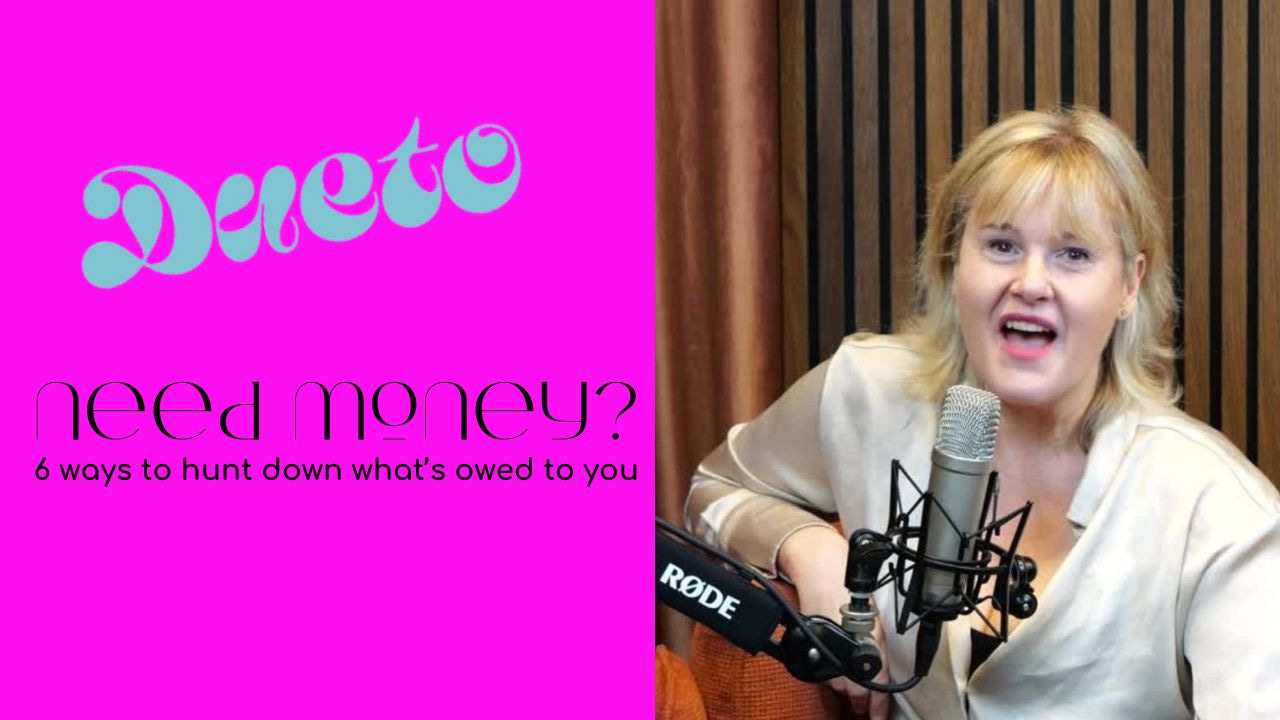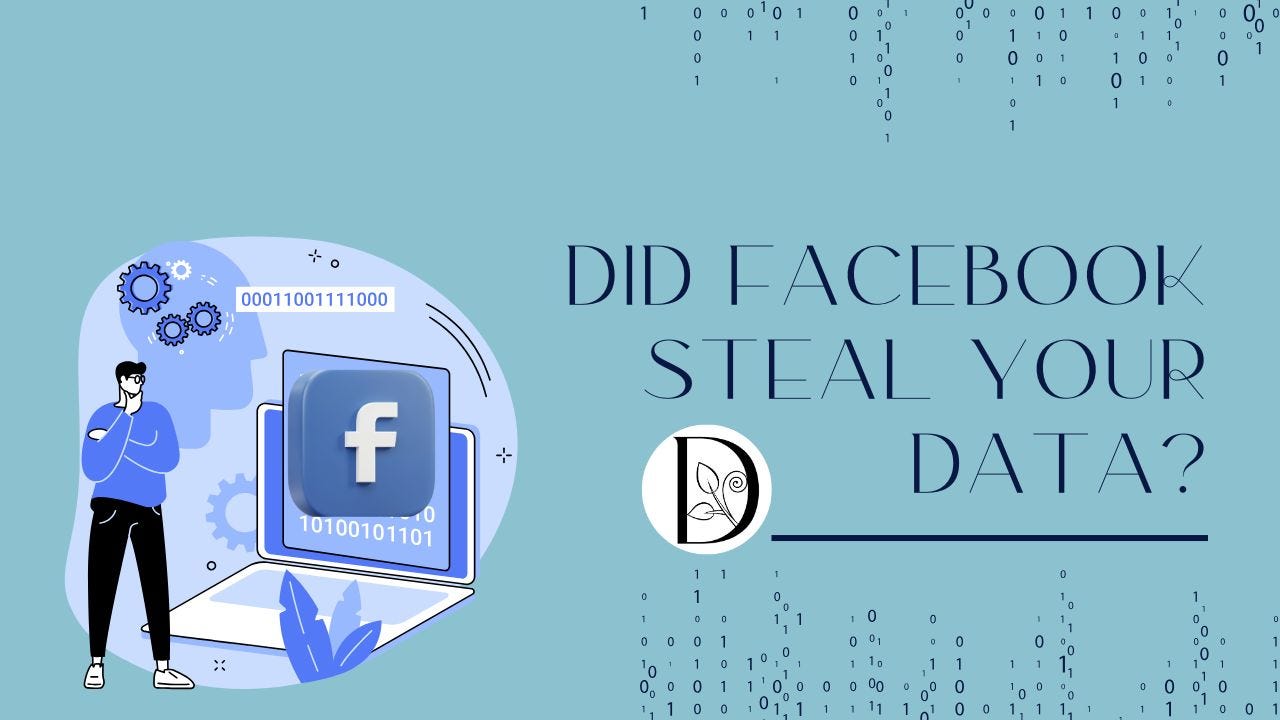Lazy money: find yours now
A little bit of online handiwork can uncover lost money owed to you. Try these 6 checks to line your pockets.
How good is it when you find a crisp $20 or $50 note in your jeans pocket when you do the laundry?
Orfinding a gold coin lurking between the couch cushions?
It’s delightful. As good a dopamine hit as getting a winning scratchie or winning the Melbourne Cup sweep.
So what if I told you there are a couple of quick (and some not-so-quick) checks you can do to put more dollars in your back pocket? Read on …
1. Facebook might owe you
The latest news coming out of the US Congressional hearings is gagworthy. (Subscribe to Ricky Sutton’s Future Media substack to stay up to date.)
I tried to buy the new book Careless People by a Kiwi who has now been BANNED FROM PROMOTING HER BOOK. It was sold out. Bummer.
So before we knew that Facebook was so evil, there were horrible businesses like Cambridge Analytica, who basically stole data and rigged elections.
If you’re one of the 311,000 Aussies that had a Facebook account between 2 November 2013 and 17 December 2015 and installed Cambridge Analytica’s This Is Your Digital Life app – or had a friend who did – then you might be entitled to a slice of a $50m bonanza the Australian Government has secured.
To check if you’re eligible, visit this help page in Facebook to find out if you installed the app and were affected.
The Australian Government has secured the $50m sum to distribute to affected people. (I wish they’d hold Australian banks to account for allowing fraud on their platforms, too)
If you just want recognition for the privacy breach, you’ll get a base payment. But if you can prove financial loss or personal damage, you could claim more.
A third-party administrator (appointed by Meta) will publicly announce the application process some time before June in 2025. They’ll also take “reasonable steps” to spread the word — though, let’s be real, they’ll probably just post it on Facebook.
2. Did you accidentally buy junk insurance?
No judgement. Plenty of us did. $10 billion bucks worth of it.
And you can get it all back! For free (and a little bit of paperwork).
These were usually dud insurance policies that charged you each and every month and sometimes also charged interest. If you bought one of these, you are entitled to a refund. But you need to act before June 2025 to get it!
To check if you are eligible for a refund, you may need to go through your original loan or credit card documentation (totally tedious!) or check through old credit card or bank statements to see if you’re paying some regular once-a-month fee (you’ll need to ask your bank or insurer what the fee is and check whether it’s insurance or not).
Checking the Consumer Action Law Centre “demand a refund” tool can be a good first step to see if you are affected.
Read the Australian Financial Complaints Authority fact sheet about what you need to do to get a junk insurance refund – it’s not always straightforward! Some big financial institutions are involved in class actions, which would automatically enrol you if you were affected.
3. Medicare might have money for you
I don’t know about you, but I’ve forgotten which bank account is connected to my Medicare card. And, well, I am not alone.
There’s more than $247m in unclaimed Medicare benefits waiting to be returned to people who are a bit slack and need to update their bank account details.
These details need to be up to date in your MyGov account (you should create a MyGov account if you don’t already have one), click on the link to Medicare, then look for a notification asking you to update your bank details.
You’ll need to make sure you include the BSB, account number and account name for Medicare.
Read more on Services Australia about how to get Medicare benefits paid to you.
4. Check for lost shares
Once upon a time, in a world long ago, friendly mutual societies dissolved and reformed as companies limited by shares – but it sometimes gave (or allowed customers to buy) these shares.
Even government-owned organisations like Telstra issued shares to its customers when it privatised.
If you were busy with young kids or living life in the full bloom of youth ignoring the 200-page documents and finer details of these offers, you might have lost track of whether you even own any.
Or, you might have just been a paperwork idiot (like me when I lost my Telstra shares!). Read this list of companies with unclaimed shares to see if they ring a bell for you so you can start a claim.
Old shares and investments can be complicated if you don’t have what’s called the original transaction number and you may need to fill in an ownership claim statutory declaration form or read the detailed ASIC guidance.
You can find out more about the way these share-issuing situations worked by looking on the Australian Tax Office website or reading more on the Reserve Bank website.
5. Did a rich relative leave you an inheritance?
State governments sometimes end up with your unclaimed or lost money. Sometimes it’s from unpaid wages or a long lost friend or relative might have left you something in a deceased estate.
You usually need 2 things to do this check: identity documents and proof of your connection to the money. You’ll also need patience to follow through with the claim, which can be bureaucratic and time consuming. The links below describe the process for each Australian state or territory.
Read how the Australian Capital Territory Treasury and Northern Territory Government handle unclaimed money processes
Understand the Revenue NSW unclaimed money search tool and process
Find out what unclaimed money the Queensland Government holds and how to get it back
Discover how the Tasmanian Government administers refunds for unclaimed money
6. Lost a bank account or superannuation? Do a Moneysmart unclaimed money search
The government says close to $2 billion is lost in shares, bank accounts and life insurance. That’s a lot of dosh, right?
The easiest way to check if it’s yours is to do a Moneysmart unclaimed money search.
This can be a cinch if your name matches the ASIC records, but if you’ve changed your name, it can be a little harder and you might need to email unclaimed.money@asic.gov.au or call them on 1300 200 630 to ask what to do.
You can also claim the interest on old and untouched money, but there are rules as to how this is calculated (which are complicated).
To avoid losing bank accounts in the future, you can make a small deposit (even 5 cents) from time to time, and always update the bank with a new email, address or phone number if you move.
You can also use information on the Australian Tax Office website to find lost superannuation accounts.






